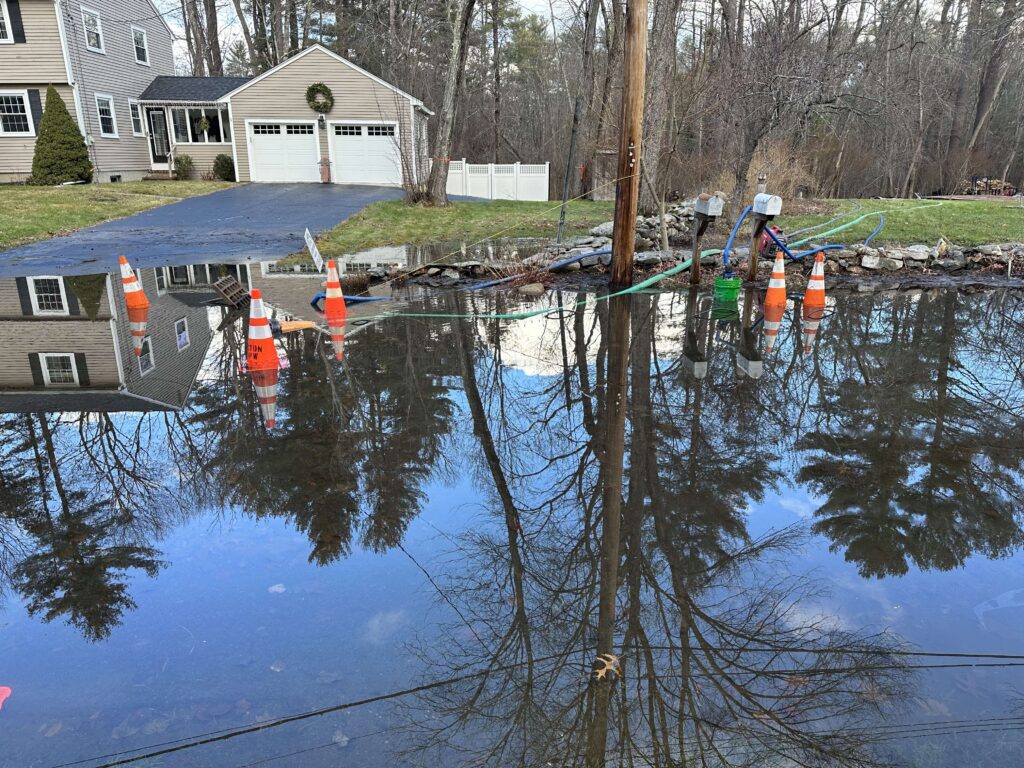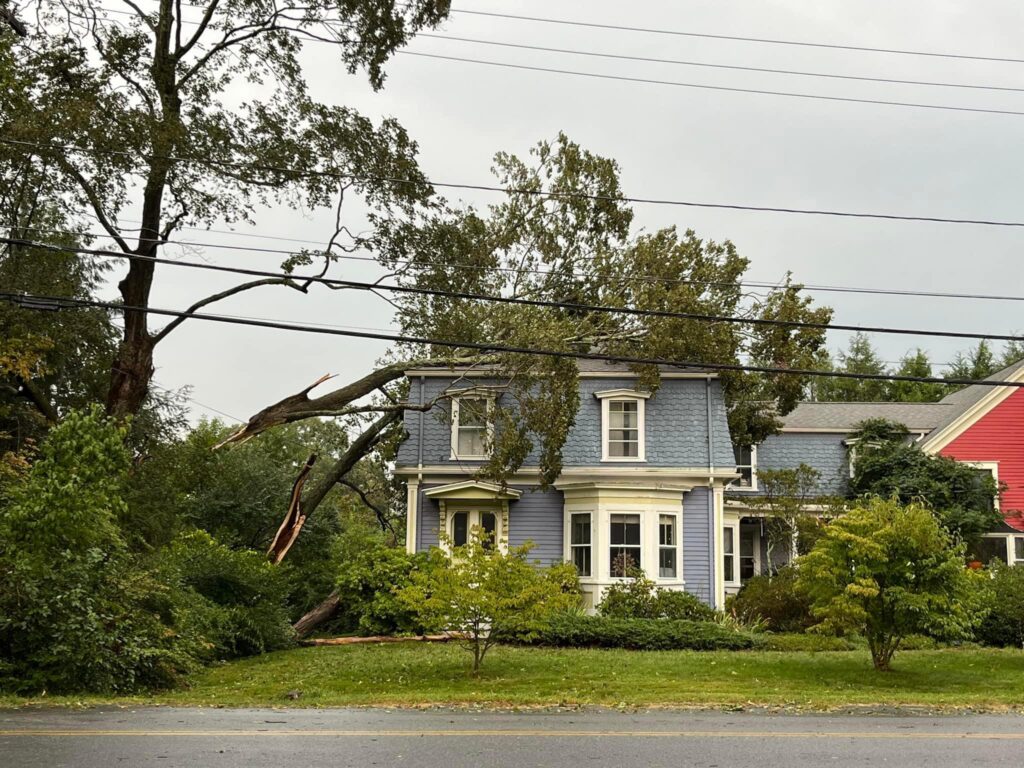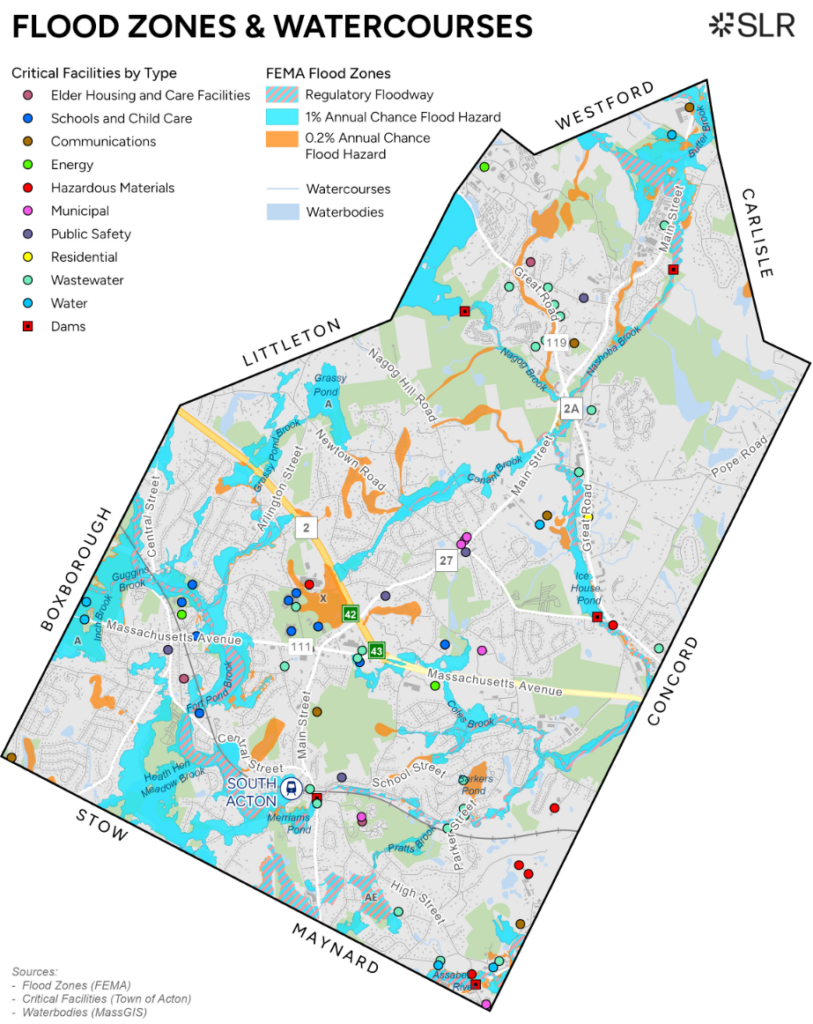
In the original flood of “biblical proportions”, Noah built an ark to save his family and two of every animal species. But how would the town of Acton protect citizens and property from a flood of “biblical proportions” or any other major environmental hazard, such as wind storms, winter storms, earthquakes, heat waves etc.? The answer can be found in the recently released draft of the Hazard Mitigation Plan (HMP) on the town’s website.
The process for updating the HMP kicked off in March, and included an Open House in May.
Andrea Becerra, Acton’s sustainability director, commented by email that “public participation is important for improving awareness of the potential impacts of natural hazards and to build support for the actions the Town takes to mitigate them.”
To that end, a webinar is scheduled for Thursday, August 29th, 12-1 p.m., to present the draft plan and answer questions. Registration for the webinar is online. Or you can send comments on the plan to the Acton Local Hazard Mitigation Planning Team before September 11, by writing to Sustainability@actonma.gov.

The plan is 113 pages long, but Becerra says pages 1-5 describe what a Hazard Mitigation Plan is and presents the goals of the plan. Later pages are rich with data about past environmental hazards to anticipate what future hazards might look like. Extreme weather events are expected to become more frequent or more severe, due to climate change. The plan includes maps that show flood-prone areas and identifies resources that might need special protection such as public safety buildings, schools, utilities, assisted living facilities, and dams.
Strategies to mitigate risks include: tree trimming, storm drain management, snow clearing, reverse 911 emergency communications, review of building codes and permits, and more. Many of the strategies from the 2018 plan are evaluated for progress and effectiveness, and are carried over to the new plan.
There is only so much that municipal government can do, so one of the HMP’s proposed mitigation actions is, “Develop programs for residents to improve individual hazard preparedness and knowledge of local climate hazards.” . The U.S. government website Ready.gov has detailed guidance for individuals and families on how to be prepared for disasters and emergencies. Steps to consider:
- Have emergency food and water supplies in your home in case you need to shelter in place, and a “go-bag” with essentials you can grab quickly if you need to evacuate. The federal government suggests packing lists and how to plan.
- Listen to emergency broadcasts and reverse 911 communications and take recommended actions.
- Learn basic first aid and CPR.
- Help your neighbors–especially those who may need extra assistance.

Tom Wolf has been a resident of Acton since 2001 and is a volunteer on the Land Steward Committee.
